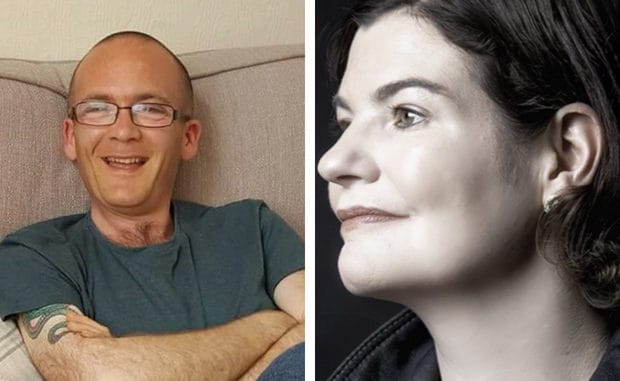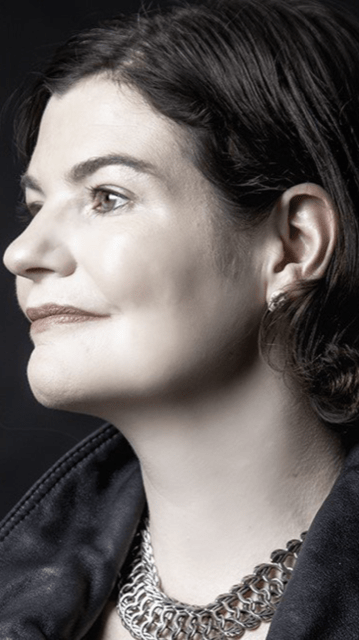
Last week the topic of debate was university tuition fees. Melissa said people should pay, Matthew said university education should be free or at least a minimal cost.
Some 47% of the vote agreed with Matthew, 42% with Melissa and 11% were undecided.
This week it is a sensitive topic. Should the burka be banned or should women be free to choose what they wear, whether that be a mini-skirt or a hijab?
Melissa says:

You can’t tell women what to wear. You just can’t do it. Women must enjoy the right to express their identities and personal preferences exactly as they choose, exactly like men. Unless there’s a health and safety issue. I’d rather not be served by a committed nudist at Burger King, say, and I understand that bank clerks would prefer not to deal with bike helmets. But other than those very specific examples, women must be allowed to choose their outfits without state interference. Otherwise, what next? No fat chicks in bikinis? No short skirts for the over-40s? Give over.
Doubtless the argument will be made that Muslim men force Muslim women to take up the veil. That may be true in a small minority of instances, but it certainly isn’ t true in all, or even most – many women make the choice alone, to express their religious commitment, or for many other reasons. And even if some women are forced to cover some bit of themselves, why would forcing them not to be preferable? If the very notion of forcing women to do something is abhorrent, how can we then justify forcing them to remove their garb, to dress to suit us instead?
They banned the niqab in France in 2004, although of the five million Muslims in France, only around 2000 ever wore the niqab, so you do rather wonder why they bothered. Anyway, you still see plenty in the wealthier parts of Paris, where Saudi women go to stock up on Givenchy and Dior. Money shouts louder than religious intolerance. But France practises the full separation of religion and state, so the French government is legally prohibited from recognising any religion. It makes a bit of sense there. But here, our Monarch rules by Divine right, and 26 bishops are automatically qualified for a place in the House of Lords. If we’re willing to put up with that sort of nonsense, it would be an offensive piece of idiocy for us to tell any member of any religion what they can and can’t do.
“Ah, but we’re expected to cover our shoulders and thighs when we visit Egypt!” some idiot will doubtless object. “How is it fair we have to dress to suit them, but when they come over here, they continue to dress like foreigners?” If you don’t like Egypt’s cultural practices, that’s your business, but don’t try to retaliate by making England more like Egypt. If you think England is a fine country, where people can wear what they like and behave as they please, don’t spoil it by refusing to extend the same courtesy to others. Don’t express your contempt for rules by baying for rules. That’s downright silly.
Insisting that Muslim women do not wear the veil denies them the rights and freedoms that Christians, Atheists and Jews take for granted – the right to self-expression, to practise and express their beliefs – because they are Muslim women. It is discrimination, religious and sexual discrimination.
The idea of covering one’s assets to avoid attention may seem an anathema to Western women (although when I get a spot, bad hair day or particularly abrasive facial, I can certainly see the appeal.) To a culture devoted to selfies, beauty, fashion, self-expression, making women invisible does rather stick in the craw.
And yet, while the burka may make a woman invisible in Saudi Arabia, it sure as hell won’t make her invisible in Broadstairs. It will guarantee, in fact, that she will be stared at, publicly commented upon, then judged. In England, 60% of the victims of anti-Muslim attacks are female, and of these some 75% wear a traditional head covering. Women regularly have those veils ripped from their heads, spat upon, smeared with filth. In this culture, wearing a veil is an act of tremendous courage, of choosing to assert one’s independence and values, irrespective of the consequences. I admire these characteristics enormously, and would prefer to encourage them in women, rather than seek to quash them.
Matthew says:

Banning the burka is something of a hot topic, it’s fair to say.
There are a number of different types of veil work by female followers of Islam, namely;
- Hijab, which covers the head and neck.
- Niqab, which covers all of a woman’s face except for her eyes and usually flows down to the mid-back to cover a woman’s hair.
- Burka or Burqa, which covers the woman’s entire body from top to toe.
There’s disagreement even within Islam as to whether the niqab is compulsory. Interestingly, face veiling was practised by many cultures before Islam, and scholars say Muslims adopted the practice to fit in. Today, however, the niqab is seen by many both within the faith and outside it as a symbol of the very opposite, of separation and difference.
There are just two – arguably ambiguous – references in the Koran dealing specifically with women’s dress, and this has led to different interpretations. The wives of the Prophet Muhammad covered themselves; however, the Koran explicitly states that the wives of the Prophet are held to a different standard.
Should countries follow in the footsteps of Belgium, Switzerland, and France – all of whom have banned the burka – and do the same? I believe they should be banned, and here are my arguments in favour of an all-out ban.
The burqa can cover up abuse
Countries where the burqa is commonly worn also have higher rates of domestic violence. In Afghanistan, 87 percent of women reported experiencing DV and, in Pakistan, that number goes as high as 90 percent. The burqa doesn’t just isolate women, it covers up evidence of the abuse. It gives the abuser the freedom to brutalise his partner without worrying that anyone will even notice.
Civic participation
The essence of a modern society is that it extends civic participation to everyone. Deliberately preventing an entire gender from taking part in society as identifiable individuals is an assault on the democratic character of the state.
Individuals are recognisable through personal attributes. Remove those attributes and you remove their individuality as well. Women are not meant to be recognised as individuals or empowered to make their own decisions. The burqa is designed to impede interaction outside the home. The failure to be recognised as an individual is dehumanising and deprives women of their role in civic life.
The wearing of the burqa is enforced through violence
In 2003 a French survey found that 77 percent of girls who wore the hijab did so because of threats. Women in the Muslim world have been punished by having acid thrown in their faces for not complying with similar demands. There is no way to break through this climate of coercion except by giving women and girls immunity from such demands by banning the source of it.
The veil is sexist
The veil is sexist in two directions. While assuming men to be fundamentally incapable of controlling their sexual appetites, the veil instils real gender inequality by placing the onus of checking male impropriety solely upon women. The burka prevents women from eating or dining in public, and she can’t be easily heard. She is easily forgotten.
There’s no free choice
Muslim women are increasingly not given a free choice about wearing the veil, and those who resist are beaten, threatened with death, arrested, flogged, jailed, or murdered – and if we say “Thankfully, a lot of that only happens in other countries,” then we’re forgetting that women in those countries are human beings too.
It’s fundamentally indecent of us is to stand by and do nothing while girls born in this country are subject to misogynistic and discriminatory treatment. Instead of standing up for our values of decency and equality, there is only capitulation.
It’s time that the authorities stopped mouthing platitudes about “choice” and “freedom of expression” and acted to protect the interests of girls who might as well be living in Pakistan, so restrictive are the limits on their freedom.
The bigotry charge is the cudgel used to beat those of us who insist that some cultural values oppress and diminish women, and therefore have no place in a democratic and open society. Let all girls and women be seen as well as heard!

